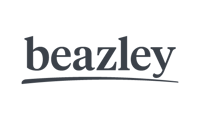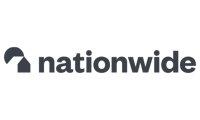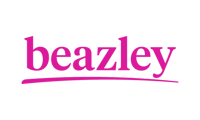What is a board evaluation ?
Learn what board evaluations are and how to choose the right approach for you.
A board evaluation is a formal assessment of a board’s performance and effectiveness. It focuses on how the board of directors operates and how well it fulfills its roles and responsibilities.
Board evaluations are conducted by gathering information, often from a wide range of sources — from surveys, interviews, and meeting observations to board papers, meeting minutes, and agendas. Boards can conduct self-assessments or work with an external facilitator.
The output is typically a report that summarises the review’s key findings. It will identify the board’s strengths and weaknesses and outline recommendations for improvement. Ultimately, a board evaluation will give a board the information it needs to improve its performance while also ensuring good governance and compliance.
Regulatory requirements and best practices
Regular board evaluations are often a requirement of local company law, corporate governance regulations, and listing rules.
In the UK, France, and Sweden, for example, local corporate governance codes require listed companies to conduct an annual board evaluation and disclose certain details about the evaluation process and outcomes in their annual reports. In the UK and France, listed companies that meet certain criteria are expected to conduct an external evaluation once every three years.
In the US, the NYSE requires the boards of listed companies to perform an annual assessment, but it doesn’t specify a particular method or require detailed disclosure; companies need only disclose that an assessment has taken place. Companies listed on NASQAQ are not required to conduct formal assessments, but many choose to do so to demonstrate their commitment to good governance.
In most regions, it's considered best practice to assess the board, its committees, the chair, and individual directors on a regular basis. Assessments should be structured and objective and look at a wide range of factors such as board composition, diversity, the board’s relationship with management, and decision-making processes.
Types of board evaluation
Board evaluations can take several forms:
- Self-assessments: board members evaluate their own performance through structured surveys or discussions, often facilitated by a digital questionnaire tool.
- Peer reviews: directors share confidential feedback on each other.
- Chair evaluations: reviews focus on the effectiveness of the board chair.
- Committee evaluations: reviews focus on the performance of specific board committees.
- External evaluations: independent experts conduct an objective review of board performance.
- 360-degree reviews: executives and stakeholders are consulted alongside board members.
Combining these approaches can deliver a more comprehensive assessment of board performance, and drive more actionable and impactful recommendations.
The role of data in board evaluations
A data-driven approach to board evaluation enables a more objective assessment of board performance. It helps boards to move beyond subjective opinions and measure their effectiveness in a more scientific way.
This is because data enables you to make comparisons with other organisations and to observe trends over time. This means you can identify patterns and understand your board’s performance relative to its peers.
When the insights and recommendations generated by a board evaluation are specific, rigorous, and evidence-backed, it’s more likely that key stakeholders will engage with them — and that the board will act on them.
A data-driven approach also provides clear evidence to stakeholders, reinforcing transparency, trust, and accountability.
The role of confidentiality and trust in board reviews
Confidentiality and trust are essential for effective board evaluations, because they encourage honest, constructive feedback. When board members feel secure, they are more likely to engage in the process and provide the candid perspectives you need to produce high-quality recommendations.
The Board Intelligence approach to board evaluation
When conducting board evaluations, our team of expert reviewers follow a robust methodology that we have developed and refined over the past two decades.
We also tailor our approach to our clients’ needs. Sometimes that means conducting a survey using our digital tool. At other times, that means a rigorous facilitated review supplemented by data and analytics. We make sure we understand what will add greatest value, so we can recommend the right approach.
The Board Intelligence board evaluation methodology
The Board Intelligence board evaluation methodology has been 20 years in the making. It is grounded in our deep understanding of the science of board effectiveness.
Our process focuses on assessing boards and committees against the three traditional pillars of board effectiveness: individuals, information, and infrastructure. It also focuses on two additional pillars, which are often overlooked in board evaluations: the way in which the board delivers impact and its role in enabling innovation. Together, we call these the "5 I's of board effectiveness".
You can find out more about our methodology and the types of board evaluation we offer here.
Board effectiveness reviews that go beyond governance requirements and put actionable, data-driven insight at your board’s fingertips.
Talk to our teamKey benefits of board effectiveness reviews
Board evaluations are a valuable opportunity for boards to step back from ‘business as usual’ and assess whether they are adding value. They help boards to refine their mandate, identify areas for improvement, and take action to enhance their impact.
By maintaining a consistent evaluation cycle, boards can adapt to changing circumstances and be confident they’re delivering their fiduciary responsibilities while driving organisational performance.
Identifying governance gaps
Board evaluations help uncover weaknesses in governance structures, policies, and practices. They can also highlight skill gaps, unclear or overlapping responsibilities, and inadequate oversight — by analysing the composition of the board, topics discussed in board meetings, and the way in which board decisions are made, for example. If the board isn’t aware of these gaps, it can’t address them, which exposes the organisation to risk.
Enhancing board dynamics
Good governance relies on strong relationships and effective collaboration between directors. Evaluations offer a structured way of assessing this and improving communication, engagement, and overall board culture. For example, they seek to understand the extent to which the board engages in constructive feedback, effective challenge, and successful collaboration versus conflict and groupthink.
Recommendations can then be made to help the board address interpersonal issues, refine its ways of working, and improve focus and alignment.
Improving decision-making processes
Effective boards are characterised by their ability to make robust, timely, and relevant decisions that enable organisational success. Board evaluations help identify barriers to efficient decision-making, such as unclear processes, information gaps, or lack of focus.
By refining meeting disciplines and agendas, clarifying roles, and improving board reporting, evaluations enhance the board’s ability to make well-informed decisions at pace. This leads to better risk management and stronger strategic oversight, and more impactful governance overall.
Meeting regulatory requirements
Regular board evaluations are considered best practice for corporate governance in many industries and jurisdictions. By proactively assessing board effectiveness, and demonstrating their commitment to good governance, organisations can keep up with evolving governance standards while maintaining credibility and trust.
How to conduct a board effectiveness review
Start by defining the objectives for your board review and selecting an evaluation method that will deliver the insight and outputs you need — for example, it may be best to conduct a self-assessment if you want to do something relatively resource-light, or you may wish to conduct an external review to support a new chair who wants to get up to speed quickly. Whatever approach you select, it’s important to encourage open, constructive feedback by maintaining confidentiality throughout the process.
Once you have decided how you’ll conduct the review, use a range of information sources, such as surveys, interviews, and facilitated discussions, to gather insights. Analyse the findings, comparing the board to available best practice standards or industry peers, to identify strengths and areas for improvement. Then, develop an action plan to address any gaps identified.
Case studies and customer success stories
Board Intelligence is trusted by 75,000+ directors, executives, and governance professionals globally.
Find out why nearly two-thirds of our business comes from referrals and take a look at some of our client success stories here.
Frequently asked questions
-
How often should boards conduct evaluations?
Boards should assess their performance at least once a year. Regular reviews help boards to identify their strengths, address their weaknesses, and align their focus, skills, and ways of working with the organisation’s strategic goals. Many organisations also conduct externally facilitated reviews every two to three years, which gives them an impartial perspective and helps to challenge group-think and confirmation bias.
-
How flexible is Board Intelligence’s approach to board evaluation?
We will always tailor our approach to meet our clients where they are. We recognise that one size does not fit all, so that’s why we offer a range of options — from technology-enabled surveys to facilitated reviews. We also offer custom reviews for committees and subsidiaries across all governance structures, from mutuals to listed companies.
Trusted by 70,000+ directors and executives across the Fortune 500, FTSE 100, and OMX 30.























Board evaluations rooted in science, not convention
Board effectiveness reviews that go beyond governance requirements and focus on the value and impact of your board.
- Board performance framework shaped by 20 years’ experience across thousands of boards.
- Analytics, data-driven insights and actionable recommendations.
- Custom reviews for different committees and subsidiaries across all governance structures, from mutuals to listed companies.

Team diagnostics that drive deeper insight
Don’t wait for a formal board or executive team evaluation; get real-time feedback for continuous improvement.
- Digital tools, analytics, and deep-dive assesssments led by our team of experts.
- Evaluate board and executive team performance drivers not typically covered by board evaluations — from agenda analytics and meeting materials to decision-making agility and innovation quotient.

See how your board pack stacks up
Find out if your board information is setting your board up to succeed — or getting in its way.
- Benchmark board and committee materials against best practice and your peers, with a framework shaped by our work on thousands of board packs.
- Identify strengths and opportunities for improvement with expert, data-driven analysis.
- Enhance board pack quality and impact with a bespoke transformation plan.

Put analytics at the heart of board agenda planning & reporting
Expert analysis and benchmarking of board and committee agendas to support effectiveness reviews and stakeholder (and UK s172) reporting.
- Analyse where and how effectively your board spends its time.
- Identify actions you can take to deliver more focused, forward-looking, and strategic board meetings.




